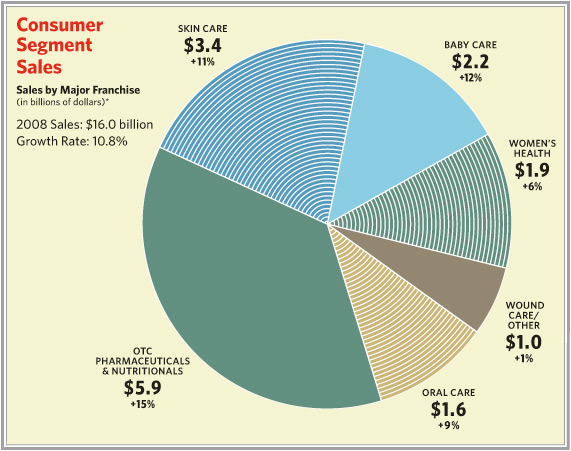Embracing Life Anew
A treatment gives a schizophrenia patient the chance to reclaim her independence.
Masako Yoshino once felt schizophrenia was like a blizzard in her mind. But today, amid cold, blustering snow in northern Japan, she finds warmth and calm with a four-legged friend. “My schizophrenia symptoms are under control,” Yoshino-san says. “I feel my life has a new beginning, and I wish the same for others suffering from this condition.”
Understanding Needs
Yoshino-san, 27, is one of 50 million people worldwide who suffer from schizophrenia. The disease is devastating for patients, their families and society, and presents a significant burden to health care systems.
Patients throughout the world share a common need from drug therapy: delaying time to relapse. Studies show that more than 80 percent of unmedicated patients with schizophrenia relapse at least once within the first five years of diagnosis, and the primary reason for relapse is not taking their medications as prescribed.
Yoshino-san was diagnosed a little more than 10 years ago. She was hospitalized and eventually received treatment with medication that gave her some relief from the paranoia and voices haunting her mind. She fell in love, got a job and resumed a life she enjoyed. But eventually it became harder for her to take her medication each day as prescribed, and she relapsed.
“All these new experiences all at once pushed me over the edge, and my condition worsened,” says Yoshino-san. “I gradually began to skip taking my medicines.”
She consulted her doctor, who recommended changing to an intramuscular injection, RISPERDAL® CONSTA® (risperidone), which was granted approval by the Japanese Ministry of Health in early 2009 and became available in June. RISPERDAL® CONSTA® was initially approved for the treatment of schizophrenia in the U.S. in 2003 and is registered in more than 80 countries worldwide. Now Yoshino-san is doing well with the medication, which is administered every two weeks.
Long-Acting Therapies
Long-acting therapies that are professionally administered allow for identification and intervention when a dose is missed. Patients and society can benefit when non-adherence—which can lead to relapse—is addressed.
For more than 50 years, the Neuroscience franchise has been committed to meeting patient needs in the treatment of schizophrenia. Once-daily RISPERDAL® (risperidone), which was first approved in 1993, was a significant new option for treating the symptoms of schizophrenia. In 2003, RISPERDAL® CONSTA® became the first long-acting atypical antipsychotic, offering every-two-week dosing. And in 2009, the U.S. Food and Drug Administration granted marketing approval for INVEGA® SUSTENNA™ (paliperidone palmitate) extended-release injectable suspension, the first atypical antipsychotic with once-monthly maintenance dosing approved for the treatment of schizophrenia.
“We’ve succeeded in a series of innovations that build on our strong heritage and long-term commitment to meeting patient needs in schizophrenia,” says Husseini K. Manji, M.D., F.R.C.P.C., Global Therapeutic Area Head, Neuroscience, Johnson & Johnson Pharmaceutical Research & Development, LLC. “And we also continue to build strong programs to treat other disorders with a high unmet need for effective therapies.”
Targeting Unmet Needs
Alzheimer’s disease is another devastating neurodegenerative disorder. It is diagnosed in more than 26 million people worldwide, and some estimates project that number will quadruple by 2050.
In September 2009, Johnson & Johnson completed the acquisition of substantially all the assets and rights of Elan Corporation, plc—a leading company conducting both antibody and vaccine research in Alzheimer’s disease—related to its Alzheimer’s Immunotherapy Program (AIP). The AIP includes multiple compounds currently under evaluation.
The lead compound, bapineuzumab—currently in Phase III clinical trials—is being evaluated for slowing the progression of Alzheimer’s disease. A vaccine for Alzheimer’s disease is also under development. The AIP compounds are being developed through a collaboration between Janssen Alzheimer Immunotherapy and Pfizer, Inc.
Collaboration and innovation
Biomarkers, integrative informatics and brain imaging are increasingly important in researching neurodegenerative disorders and developing solutions to meet patient needs. “Such work cannot progress in isolation,” says Dr. Manji. “Collaborations and partnerships must play a crucial role in arriving at breakthrough solutions.”
For example, in October 2009, Johnson & Johnson entered into a strategic collaboration with Crucell NV, focusing on the discovery, development and commercialization of monoclonal antibodies and vaccines for the treatment and prevention of influenza and other infectious and non-infectious diseases. The collaboration provides access to technology and expertise in vaccine development, which, along with the Alzheimer’s disease vaccine program, will enable a broad vaccine platform.
Pursuing the best science is part of an innovation strategy to continue to meet present and future patient needs. “Solutions for the future may require small and large molecules, devices and diagnostics,” says Dr. Manji. “We have all those pieces, plus a willingness to collaborate with experts inside and outside the company.”


